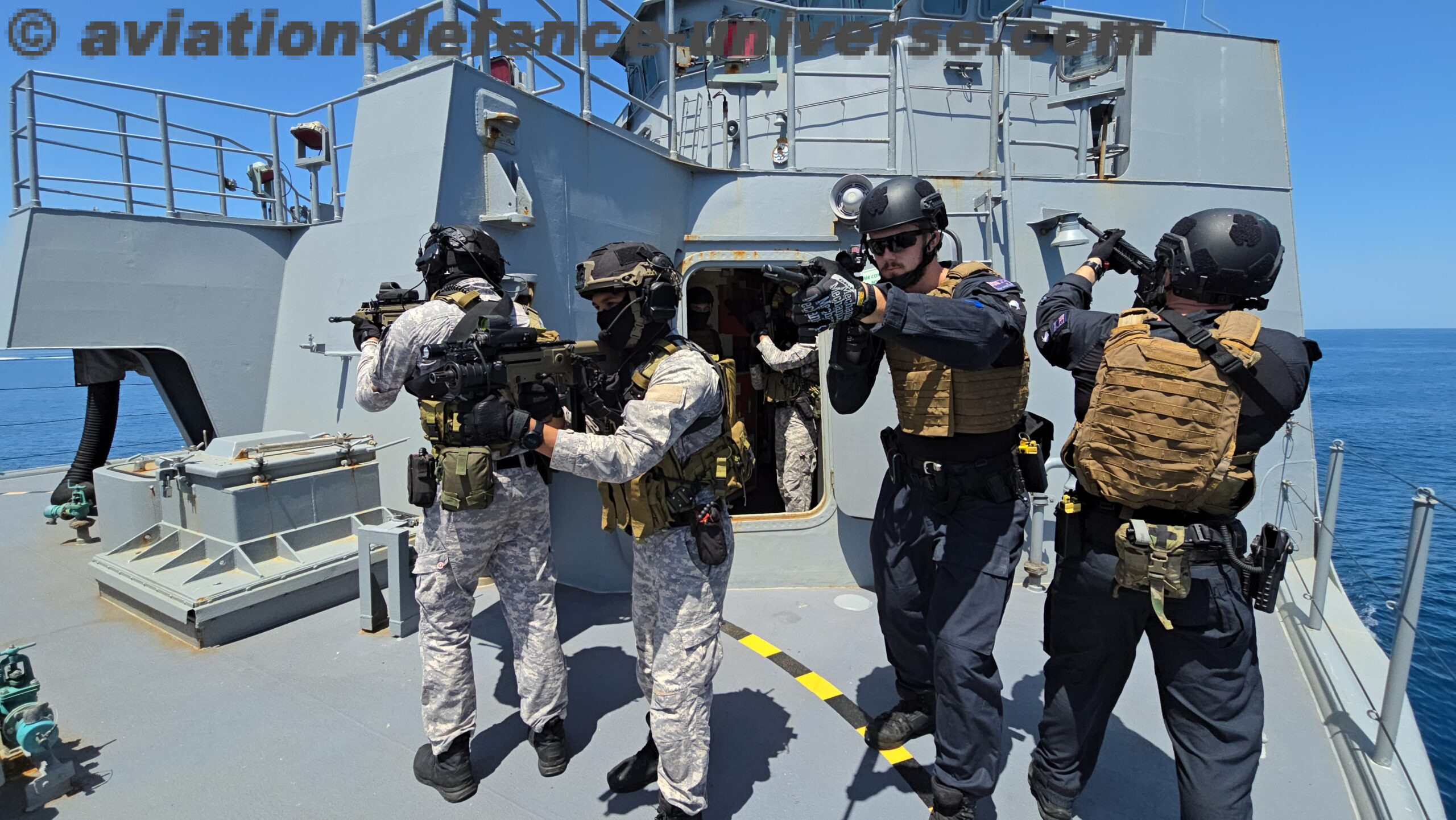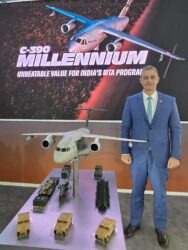
By Sangeeta Saxena
New Delhi. 26 November, 2015. A range of maritime platforms with the world’s leading navies has resulted in a product portfolio of maritime systems that focuses on these new requirements and Loïc Piedevache (LP), Country Head, MBDA, Aviation & Defence Universe(ADU) in an exclusive chat spoke on all that it has on the platter for Indian Navy in addition to the other forces.
MBDA is proud of its Exocet SM39 ordered for the Indian Navy’s Scorpene submarines and feels Exocet AM39 for air-launched anti-ship capability can also be a great asset to the force. “Our strategy revolves around offering the Indian Navy, a choice of solutions based on the most advanced technology. The weapon provides the Scorpene with an extremely effective anti-ship capability. Though launched in a watertight VSM capsule through the submarines torpedo tubes, once in the air, the missile behaves like a standard Exocet with its low, sea-skimming and manoeuvring advantages. The VSM exits the water some distance from the submarine thereby keeping the launch vessel’s position concealed. Unlike its main competitor, with Exocet SM39 the submarine does not have to rise to periscope depth before launching its attack thus allowing for maximum discretion and survivability,” informed Loic.
“We also feel Marte MK2/S or the Marte ER which has a range exceeding 120km, at around 300kg, is less than half the weight of comparative missiles in this range class, will be excellent for Indian Navy. Such a weight saving gives a maritime helicopter over an hour of extra flight duration, a significant operational advantage. For the mobile coastal defence system we have been discussing Exocet MM40 Block 3 which is a 200km class weapon. The MAITRI or SR-SAM programme, which hopefully will be given the go ahead in the very near future, will see us working with the Indian DRDO on an air defence system,” he added.

MBDA is positive that it will always help the Indian Navy on stockpile management issues. It’s important to realise the impact that a number of environmental and handling issues have on the service life of a missile. Knowing what this impact is, helps to determine the maintenance schedule and to ensure that missile stocks are maintained at the optimum level of readiness for deployment.
Sea Wolf-a naval guided missile system, Sea Venom-ANL- future anti-surface guided weapon-anti-navire leger, Sea Ranger – PB- a modular combat system for patrol boats, Simbad-RC remote control naval lightweight twin launcher for ship self-defence, Milas which counters submarine attacks from safe stand off ranges, VL MICA-M, fired from a ship-fitted vertical launch system and MdCN Missile de Croisière Naval (naval cruise missile) with specific applications for the Modular Vertical Launch System and Torpedo Tube launch, are some MBDA Naval systems which the company feels would be an asset to any Navy.

“Partnership represents our strategy and our long-term plan for India. India has a lot to offer in terms of indigenous skills, in engineering, in electronics as well as software development, so I see a very good fit between MBDA and certain sectors of Indian industry. The future will see combined teams, either here in India or in Europe or both, working to meet the needs of our respective domestic customers as well as the global export market,” said Loic.
A long-term strategic partner, MBDA wants to be seen as an Indian player and not merely as a buyer-seller associate in India. For someone who has been the Country Head, India, MBDA Group since 2007, Loic, feels that offsets alone will not ensure the fructification of ‘Make in India’. It is the transfer of the highest levels of guided weapon technology, which will make India’s dream a reality.

For over 40 years, MBDA has been an active part of the made in India, working closely with BDL which has been manufacturing the Milan missile under license for deployment from its Flame launcher. Over the years more than 30,000 Milan missiles have been produced in India for use by the Indian armed forces.
But it is has always also been interested in forging ties with Indian private sector. To further that interest, MBDA is already in talks with a number of Indian companies exploring all possibilities of working together including transfer of technology, joint ventures and joint development.





























































































































